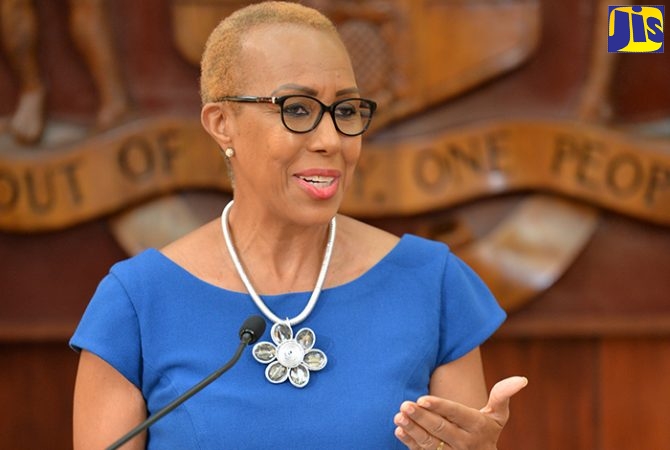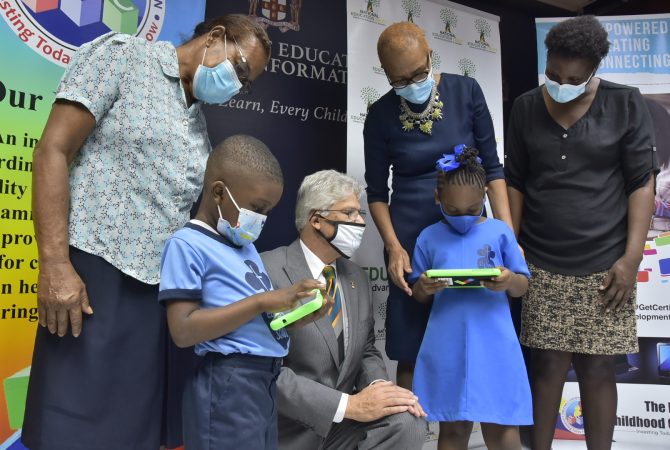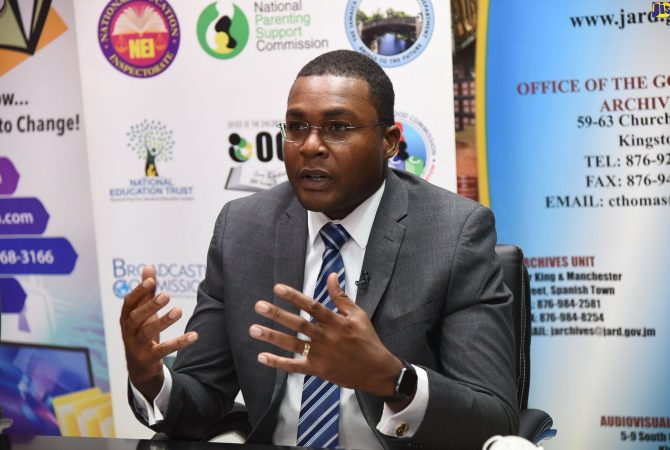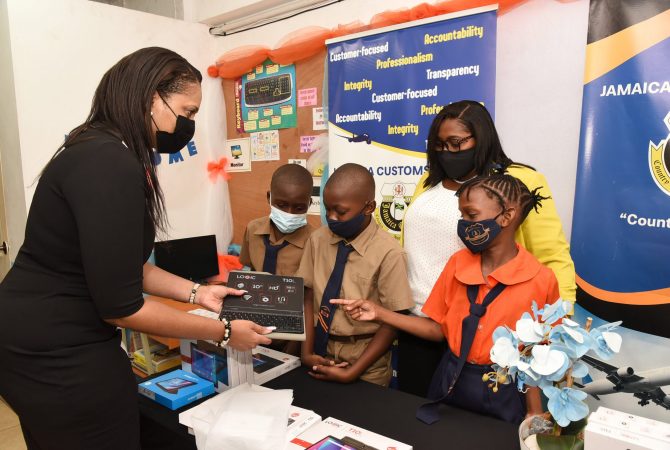The Ministry of Education, Youth and Information has received 1,000 tablet computers and supporting inputs, valued at approximately US$100,000, for the early-childhood sector.
The devices, donated by philanthropic organisation, the Project for the Advancement of Childhood Education (PACE) Canada, are in support of the Ministry’s ‘One Laptop or Tablet Per Child’ initiative and will be distributed to more than 200 institutions islandwide sponsored by the entity.
PACE Board Member, Mark Fullerton, presented the tablets to portfolio Minister, Hon. Fayval Williams, during a brief handover ceremony at the Ministry’s offices in Kingston on Thursday (November 11).
PACE Canada was able to secure the tablets through generous donations from members, supporters and through stakeholder partnerships.
Minister Williams welcomed PACE Canada’s gesture, noting that the donations “have come at a very good time for our children”.
She said that youngsters in early-childhood institutions are “probably the hardest hit” by the pandemic, as “they had to be at home … without the care and supervision of trained [early-childhood] practitioners”.
Mrs. Williams said that although face-to-face instructional delivery is gradually resuming, students will still have to use technology to access online learning.
“We know we won’t be able to get every child back into the face-to-face environment [at the same time]; they will have to be rotated. So, while there are some children [who will be] in the classroom, others will still have to be using the online system,” she pointed out.
Mrs. Williams said the Ministry continues to work with various private-sector entities and individuals, and non-governmental organisations (NGOs), to secure digital devices “to ensure our students are not left without any form of continuing education in the wake of the COVID-19 pandemic”
In his remarks, Mr. Fullerton, said that Jamaica is among the first 10 countries to adopt the onetab devices specially developed by British entity Onebillion.org, for the early-childhood sector.
They incorporate software that uses adaptive learning techniques in numeracy and literacy, including several foreign languages, delivered in 40-minute daily lessons.
Each lesson is based on the child’s level, using a pool of thousands of learning units.
Once a child has finished their lesson, onetab can be seamlessly passed on to the next youngster for their use.
Mr. Fullerton said studies show that 40 minutes of lessons derived daily by children using the devices over eight weeks, will result in significant increases in their learning ability.
“We had a chance to visit two schools… and saw, first-hand, some of the challenges that you are facing during this pandemic. So, we know the challenges are great [and] look forward to continue helping our children in Jamaica,” he noted.
Also speaking at the ceremony were Executive Director of the Early Childhood Commission (ECC), Karlene DeGrasse Deslandes, and Director, Donor and Partnership Management, National Education Trust (NET), Latoya Harris.
The provision of the 1,000 tablets forms part of PACE Canada’s ‘Tablets for Kids’ programme to obtain devices for the early-childhood institutions it sponsors. This undertaking is being executed with the support of the ECC and NET.
Several PACE Adopt-A-School sponsors donated funds towards the devices.
PACE Canada, which was founded in 1987, has worked with the Education Ministry and ECC to support more than 300 early-childhood institutions islandwide through the provision of funding and educational opportunities, and delivery of technology.










